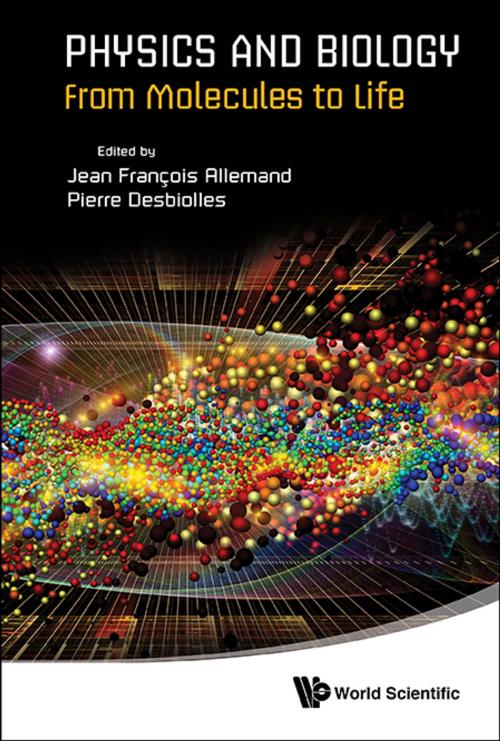Physics and Biology
From Molecules to Life
Nonfiction, Science & Nature, Science, Biological Sciences, Biophysics, Physics, Optics| Author: | Pierre Desbiolles, Jean François Allemand | ISBN: | 9789814616492 |
| Publisher: | World Scientific Publishing Company | Publication: | October 15, 2014 |
| Imprint: | WSPC | Language: | English |
| Author: | Pierre Desbiolles, Jean François Allemand |
| ISBN: | 9789814616492 |
| Publisher: | World Scientific Publishing Company |
| Publication: | October 15, 2014 |
| Imprint: | WSPC |
| Language: | English |
Do you often lose your keys? You will find in this book the best strategy to find them, or at least the one deduced from statistical physics. What is the link with biology? Some proteins use the same strategy to find their target inside a living cell. This example illustrates one of the many links between physics and biology. These links result from an intense research activity in the past years at the interface between those two disciplines. This book describes some of the most recent progresses at this interface: from instrumental progresses used in biology to the mechanical description of a cell, to molecular motors, from brain activity mechanisms to auditory or sensory perception. Many fields are covered from the molecular to the scale at the organ level. A few biological notions are presented in the first chapter that may help to access the biological aspects of the others. In the end this book may interest people passionate in science, from the simple amateur to the advanced researcher level.
Contents:
- Some Biology Basic Principles
- Fluorescence Microscopy for Biological Imaging
- Mechanical Studies on Single Molecules: General Considerations
- Molecular Motors
- Cellular Mechanics and Motility
- Exploring Neuronal Activity with Photons
- Physical Principles of Hearing
- Sensing Through Friction: The Biomechanics of Texture Perception in Rodents and Primates
- Intermittent Search Strategies
Readership: Advanced undergraduates and graduate or any person with a strong scientific background interested by the physics/biology interface.
Key Features:
- No book treating these very different aspects of biophysics is on the market. Some aspects are not treated in any book. It is more introductory and less technical than competing books on similar subjects
Do you often lose your keys? You will find in this book the best strategy to find them, or at least the one deduced from statistical physics. What is the link with biology? Some proteins use the same strategy to find their target inside a living cell. This example illustrates one of the many links between physics and biology. These links result from an intense research activity in the past years at the interface between those two disciplines. This book describes some of the most recent progresses at this interface: from instrumental progresses used in biology to the mechanical description of a cell, to molecular motors, from brain activity mechanisms to auditory or sensory perception. Many fields are covered from the molecular to the scale at the organ level. A few biological notions are presented in the first chapter that may help to access the biological aspects of the others. In the end this book may interest people passionate in science, from the simple amateur to the advanced researcher level.
Contents:
- Some Biology Basic Principles
- Fluorescence Microscopy for Biological Imaging
- Mechanical Studies on Single Molecules: General Considerations
- Molecular Motors
- Cellular Mechanics and Motility
- Exploring Neuronal Activity with Photons
- Physical Principles of Hearing
- Sensing Through Friction: The Biomechanics of Texture Perception in Rodents and Primates
- Intermittent Search Strategies
Readership: Advanced undergraduates and graduate or any person with a strong scientific background interested by the physics/biology interface.
Key Features:
- No book treating these very different aspects of biophysics is on the market. Some aspects are not treated in any book. It is more introductory and less technical than competing books on similar subjects















